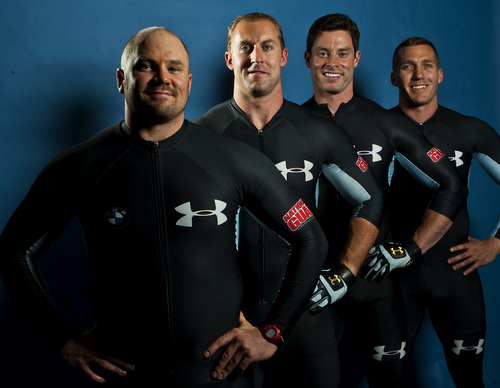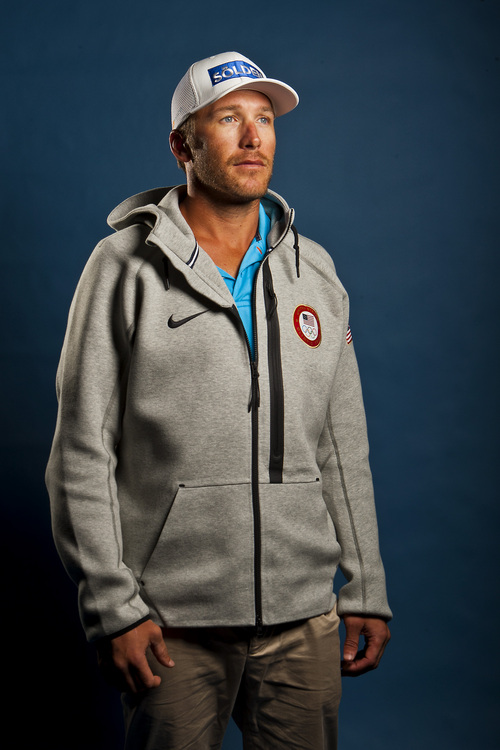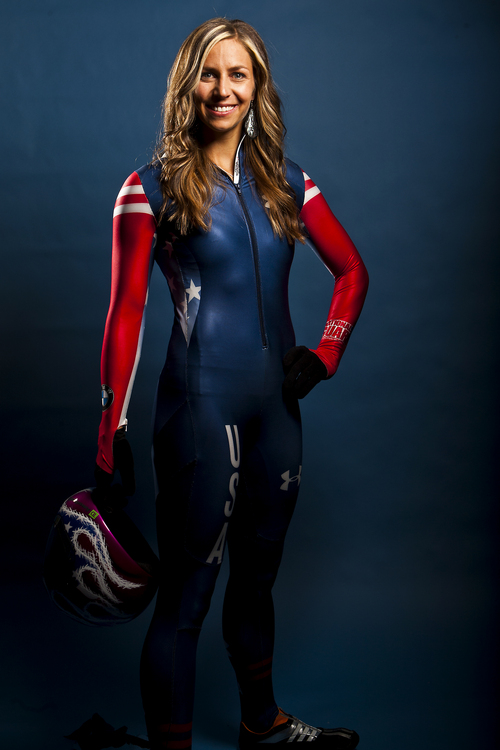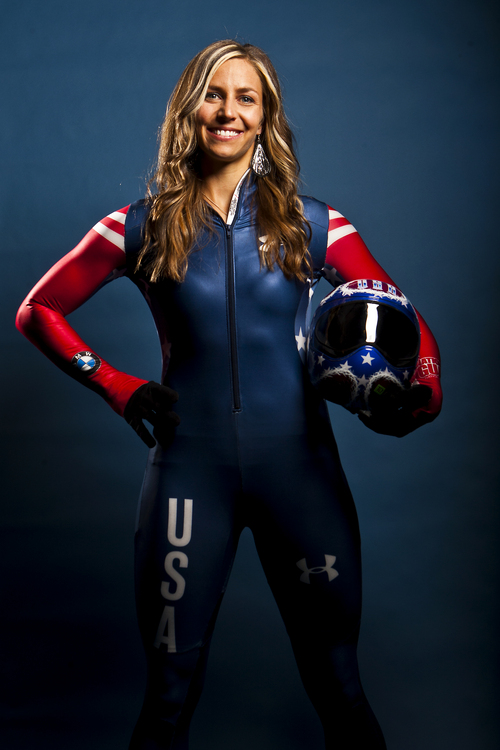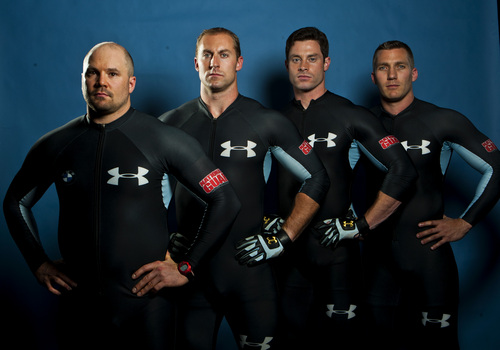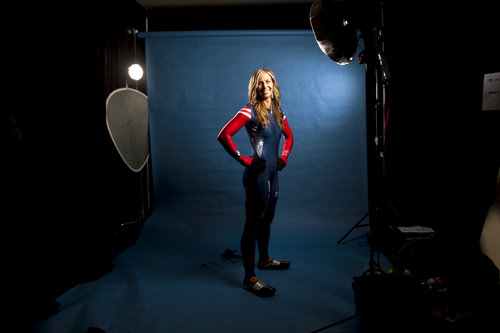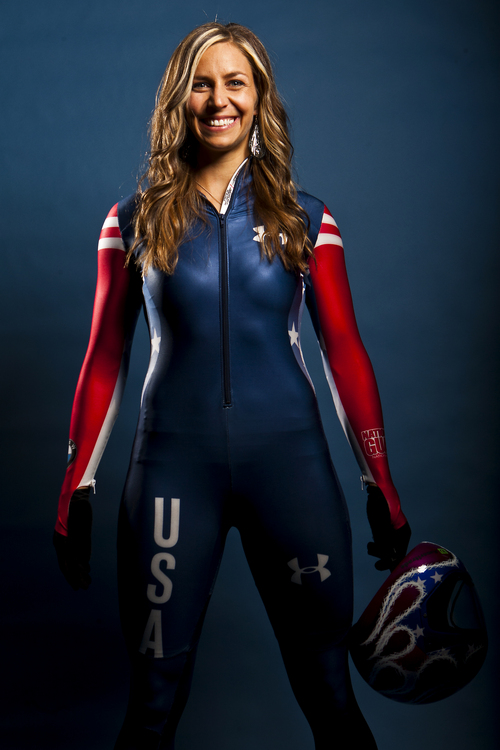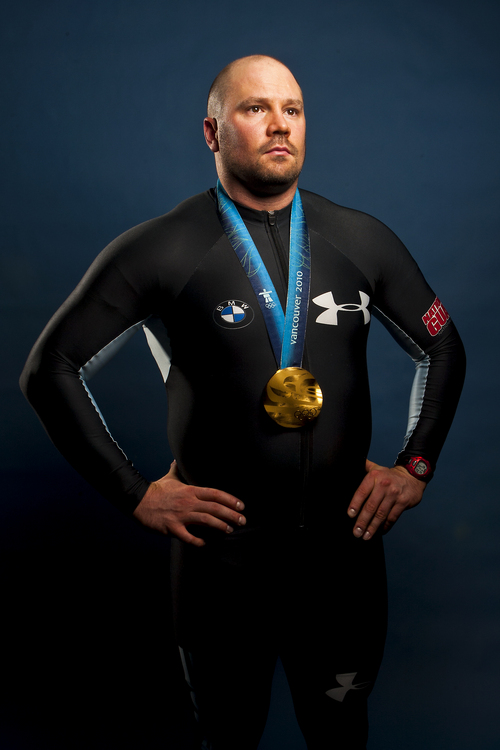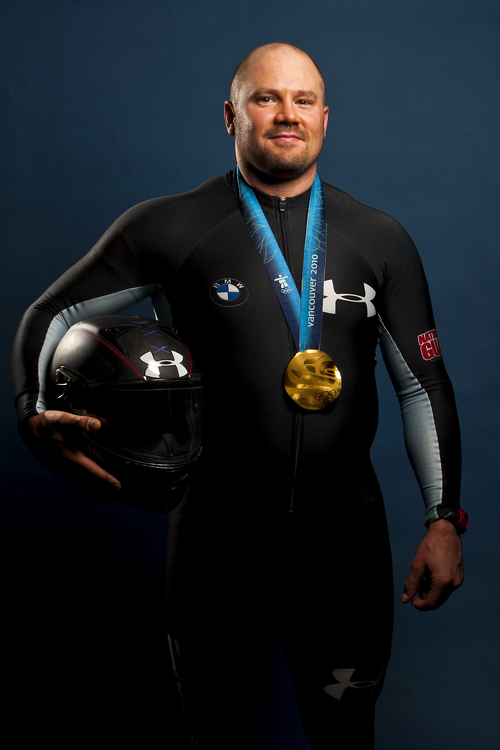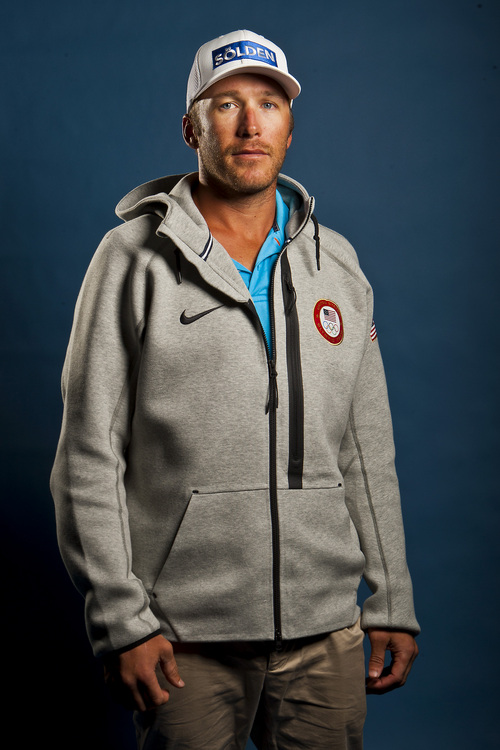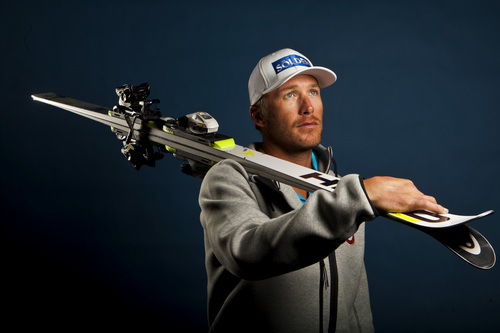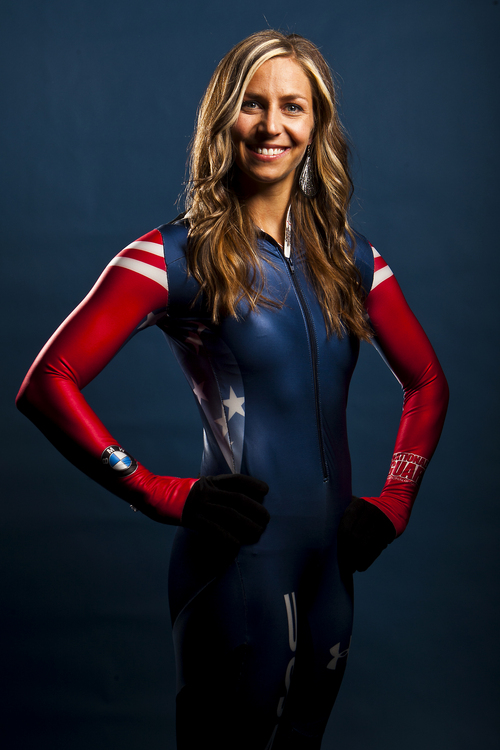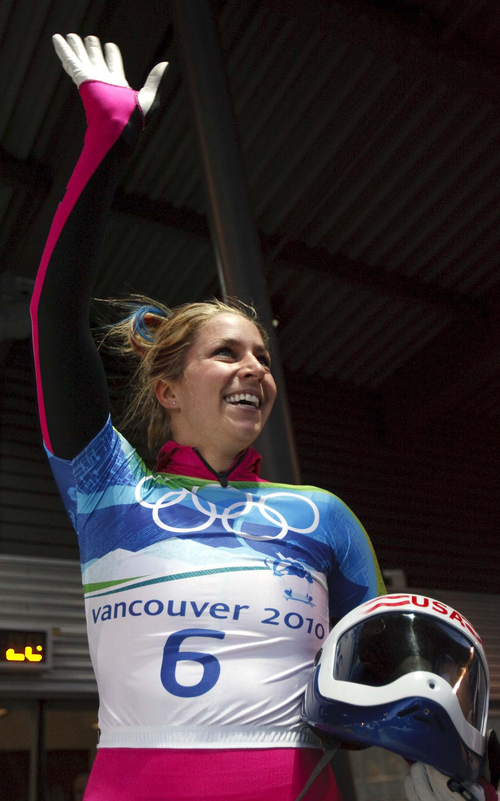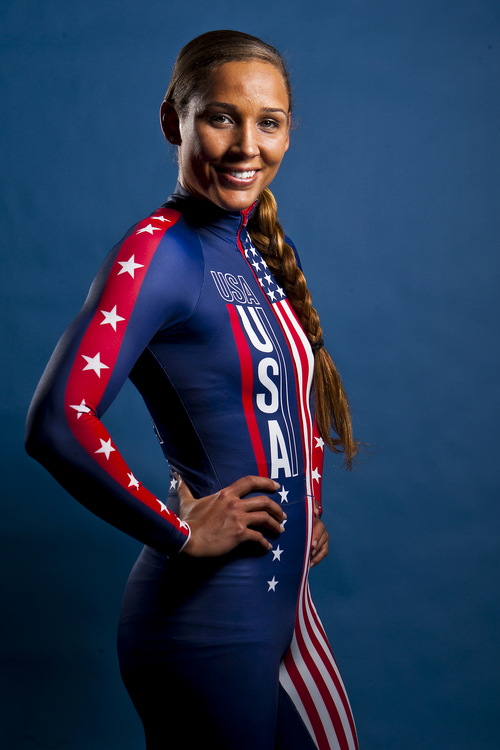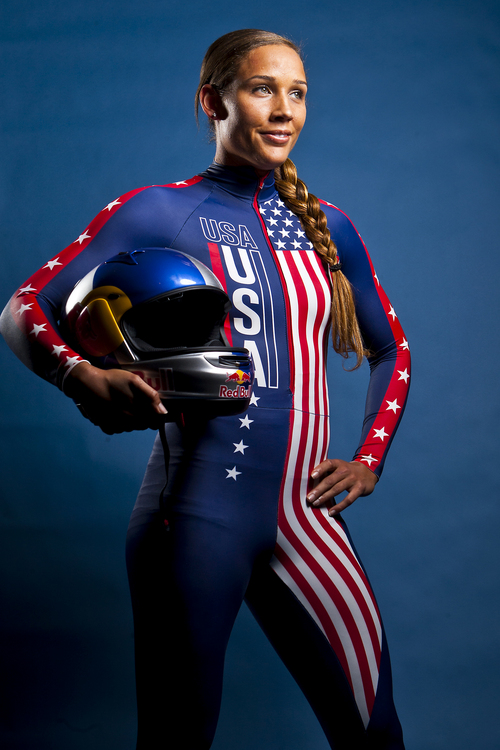This is an archived article that was published on sltrib.com in 2013, and information in the article may be outdated. It is provided only for personal research purposes and may not be reprinted.
Park City • Noelle Pikus-Pace cut a rather unusual figure upon her arrival at the U.S. Olympic Committee's biennial media summit at the Grand Summit Hotel here on Monday.
She was alone.
That's something the Olympic skeleton slider from Eagle Mountain has worked hard to avoid, having raised some $130,000 in the past 16 months to allow her husband and two young children to travel with her around Europe as she pursued a comeback on her sport's World Cup circuit. And even though it was chaotic — the kids are 5 years old and 2 — it's something she's planning to do again this season, with the Sochi Olympics and a gold medal as the hopeful final destination.
"It was incredible," she recalled for dozens of reporters from around the country who are attending the summit. "Having my family there was a dream come true. It was something that my husband always knew would be the absolute thing to tip me over the top, to make me perform to the best of my ability. And he was right."
Keeping her family close was the non-negotiable prerequisite for Pikus-Pace, when the 30-year-old Orem native was considering a comeback from her retirement just 21/2 years after finishing fourth at the 2010 Vancouver Olympics. She had been prepared for a life of contented motherhood, but an agonizing miscarriage in the spring of 2012 changed all of that.
"I was mentally gone," she recalled. "I was physically, spiritually, in all aspects drained."
She knew she needed a break, and her husband's persistent encouragement about returning to her sport finally found an ear.
So with a metal rod still in her leg from the accident that kept her from chasing gold at the 2006 Turin Olympics in Italy — she was hit by a runaway bobsled — Pikus-Pace returned to training, and quickly showed that she made a good decision. With her husband, Janson, and children Laycee and Traycen in tow through nine countries over five months, she proceeded to enjoy "my best season that I've ever had," complete with a season-ending victory on the same track in Sochi that will host the Olympics.
"I can barely get myself anywhere on time," bobsled pilot Steve Holcomb marveled, "let alone with two kids."
Certainly, it's not easy.
"Other athletes come up to me and say, 'It's so chaotic! It's so crazy. How do you do it? How do you make this work?'" Pikus-Pace said. "Honestly, it's controlled chaos. It's time management. It's priorities. And we just work very well together as a family. My husband and I, we balance each other and bring out the best in each other."
For example, he builds the sled, Pikus-Pace rides it.
Janson Pace is an engineer at NuQuest in Salt Lake City, and he has designed a new sled on which his wife will slide head-first and face-down at 80 mph. He designed her first one, too, never mind becoming an expert along the way in changing diapers, cleaning up messes, and packing kids from one place to the next.
Meanwhile, the kids have helped the family make the most of living in unfamiliar places. Laycee, in particular, is adroit in making herself at home with other athletes around a dinner table, forcing her parents to meet new people from other countries.
"It really is the epitome of the Olympic movement to travel with our kids because they open up doors that we would never have opened up on our own," Pikus-Pace said. "So to travel with them, it's perfect."
Competitively, Pikus-Pace views herself as the favorite in Sochi, in a way she never has before.
She would have been the top choice in Turin had that bobsled not run into her — she was the reigning World Cup champion — and she entered Vancouver content simply to have recovered enough to finally call herself an Olympian.
This time, though, she's coming off a season in which she won medals — "necklaces," her daughter calls them — in five of the last six races, more than any other slider on the circuit, as well as a silver at the world championships. She also has no looming financial concerns like last year, having already secured from donors and major sponsors the $70,000 or so she will need for the season (last season cost $60,000), and seems to have a special connection with the Sochi track, slower and more technical than the dangerous chute in Vancouver.
Better still, than all of that?
Her family remains right there with her every step of the way, giving her a comfort and a strength that she's never had before.
"I don't have to worry," she said with a smile. "Having them there, they're my support system. They're my everything. So to be able to see them at the top of the track cheering me on, I know that I can go down to the bottom and they're going to be there to give me a hug." —
Fogt joining Holcomb's team
Just like that, a gold medal is within reach for Chris Fogt.
The Alpine native and former sprint star at Utah Valley University confirmed at the U.S. Olympic Committee's media summit in Park City on Monday that he's been promoted into pilot Steve Holcomb's USA-1 four-man bobsled, meaning he probably will get a chance to push for gold at the Sochi Olympics in Russia.
"He stepped up this year," said Holcomb, the Park City native who will be defending his gold medal from the 2010 Vancouver Olympics. "He's the fastest guy on the team right now."
Fogt won the national push-start championship in August, and unseated Justin Olsen, who has been battling injuries. It's possible for the lineup to change again before Sochi — a selection committee decides the roster — but Holcomb said he doesn't expect that to happen barring injuries or disastrous results.
The bobsledders open their World Cup season in Calgary on Nov. 30, with the next stop in Park City on Dec. 7-8.
Fogt competed at the Vancouver Olympics as a pushman for pilot John Napier before serving a tour of duty in Iraq with the U.S. Army, but the USA-2 sled did not advance beyond the first two of four runs.


